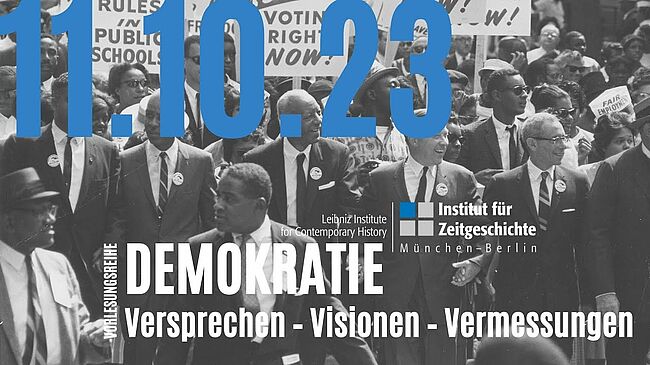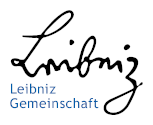- Das Institut
- Forschung
- Diktaturen im 20. Jahrhundert
- Demokratien und ihr historisches Selbstverständnis
- Transformationen in der neuesten Zeitgeschichte
- Internationale und transnationale Beziehungen
- Editionen
- Dissertationsprojekte
- Abgeschlossene Projekte
- Dokumentation Obersalzberg
- Zentrum für Holocaust-Studien
- Berliner Kolleg Kalter Krieg
- Publikationen
- Vierteljahrshefte
- Archiv
- Bibliothek
- Zentrum für Holocaust-Studien
- Aktuelles
- Termine
- Presse
- Neuerscheinungen
- Aus dem Institut
- Themen
- München 1972
- Confronting Decline
- Demokratie. Versprechen - Visionen - Vermessungen.
- Feministin, Pazifistin, Provokateurin
- Der Mauerbau als Audiowalk
- Digitale Zeitgeschichte
- Zeitgeschichte Open
- Der FC Bayern München und der Nationalsozialismus
- Das Deutsche Verkehrswesen
- Zukünfte am Ende des Kalten Krieges
- Von der Reichsbank zur Bundesbank
- Bundeskanzleramt
- Geschichte der Nachhaltigkeit(en)
- Wandel der Arbeit
- Demokratische Kultur und NS-Vergangenheit
- Geschichte der Treuhandanstalt
- Akten zur Auswärtigen Politik
- Dokumentation Obersalzberg
- Edition "Mein Kampf"
- Anonyma - Vom Tagebuch zum Bestseller
- "Man hört, man spricht"
- Newsletter
Democracy in Crisis: Brexit and the British Constitution, 2016–19
Tagungstelegramm: Lecture by Robert Saunders in the lecture series „Demokratie. Versprechen – Visionen – Vermessungen“
Brexit both exposed and accelerated a crisis in British democracy. The referendum in 2016 was only the third nationwide referendum in UK history, marking a new form of democratic decision-making. For 17.4 million Leave voters – the largest coalition ever assembled in a democratic vote in Britain – Brexit was a moment of democratic renewal: a chance to ‘take back control’ from an anti-democratic elite. But the task of delivering Brexit strained Britain’s democratic institutions to breaking point, bringing different visions of democracy into collision and triggering an unprecedented assault on its elected Chamber. MPs were cast as ‘traitors’ and ‘saboteurs’, Parliament was accused of ‘thwarting the democratic decision of the British people’, and judges were denounced as ‘enemies of the people’ for defending Parliament against the Executive. In 2019, Prime Minister Boris Johnson tried to suspend Parliament altogether, and the Conservative manifesto later attacked ‘a broken Parliament that simply refuses to deliver Brexit’. Meanwhile, Remainers accused their opponents of a ‘coup d’état’, intended to ‘hi-jack democracy’, and demanded a ‘People’s Vote’ to test the democratic mandate of any Brexit deal.
The lecture by Robert Saunders (Queen Mary University of London) explored both the causes and consequences of Britain’s democratic crisis. It asked why there was such a widespread sense of democracy in peril, and set Brexit within the longer history of democratic thought in Britain. It explored the relationship between parliamentary democracy and direct democracy, and assessed the legacy of the Brexit controversy for democratic thought and practice in the UK.
The talk on October 11, 2023 was part of the IfZ lecture series „Demokratie. Versprechen − Visionen − Vermessungen“ and the autumn school "Democracy in Modern European History", organized jointly by the DAAD Research Hub for German Studies at the University of Cambridge. Chair: Martina Steber, Leibniz Institute for Contemporary History.
In addition to the face-to-face event, the lecture was also available as a Zoom webinar - the recording can now be viewed here:






